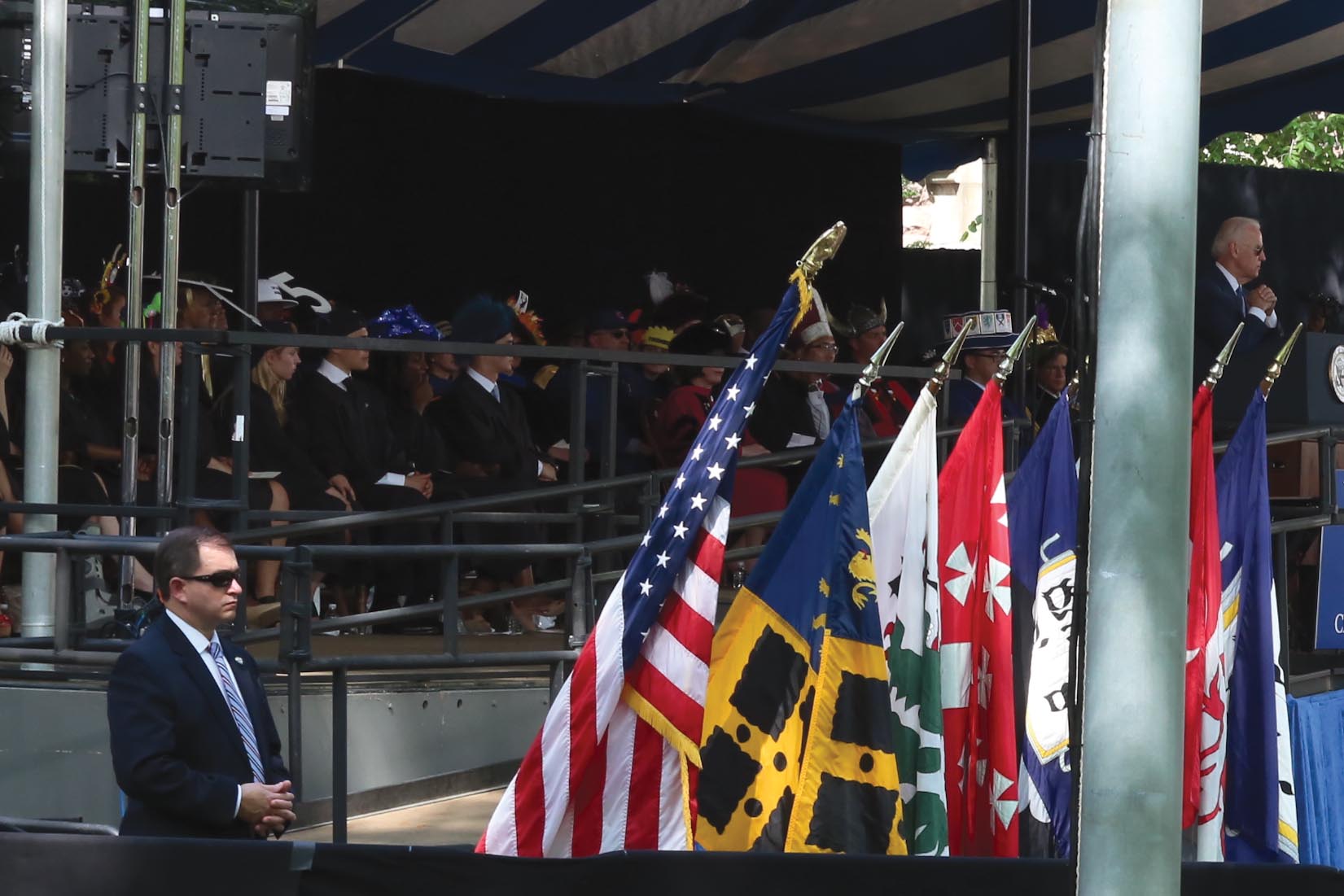
Several high-profile figures have come to Yale over the past year — from national security officials to the vice president — requiring complex security coordination in the process.
Every year, visiting dignitaries who require U.S. Secret Service protection travel to New Haven for a variety of reasons, from closed meetings to public talks. Just last week, National Security Advisor Susan Rice visited to give an open talk at the Yale Law School and attend a private dinner at Timothy Dwight College. Each such visit requires coordination between the Yale Police Department and several other law enforcement agencies in an effort to keep those on campus secure. These measures range from using Yale’s own bomb dog to completely closing off of certain areas of campus.
“I want them to feel comfortable and safe on our campus,” University President Peter Salovey said of the high-profile visitors. “We do everything we can to be cooperative and, I would say, the integration of different security services — Secret Service, Yale Police, sometimes the FBI and New Haven police if we’re on city streets.”
Mike Patten and Steven Woznyk, Yale Police Department assistant chiefs, receive primary requests for dignitary protection and then coordinate with each YPD officer and U.S. Secret Service agent put in charge of each specific case. YPD provides police resources, such as personnel from patrol, investigative services and emergency services, as well as local expertise. Woznyk said he could not discuss specific details surrounding high-profile visits to campus due to security reasons.
According to Woznyk, the challenges associated with these visits include logistics, venues, movements on and off campus and whether the visiting dignitary stays overnight.
Senior Advisor to the President Martha Highsmith said in working through these difficulties, the first priority remains keeping members of the Yale community safe during high-profile visits.
“There are always challenges, but they are what they are every day: keeping the campus safe,” she said. “When you have high-profile visitors who maybe attract additional attention to the campus, it’s always the safety and security of our population first and foremost. We have our own police bomb dog, and New Haven has bomb dogs as do the state police.”
Students gave mixed reports about seeing the Secret Service on campus. Eleven of 21 students interviewed said they had noticed the Secret Service at Yale, noting black SUVs, men in sunglasses and entourages following high-profile figures such as former President Jimmy Carter, who spoke at a campus forum in December 2014, and Malia Obama, who was on campus last month. In May, students were not permitted to be in Old Campus dorms from early morning to late afternoon on the day Vice President Joe Biden spoke at Commencement.
Dustin Nguyen ’18 said while at Yale over the summer, he noticed a number of Secret Service agents standing outside of Jonathan Edwards College.
“I saw a car that said U.S. Government on the license plate, and I walked over to them to look at them closely, and they had pins on them that has the Secret Service logo,” he said.
Still, 10 of 21 of students interviewed said they had never noticed the Secret Service on campus.
Woznyk explained that not all U.S. Secret Service visits entail visible security.
“Assigned resources vary depending on the visitor and activities on campus,” Woznyk said in an email to the News. “Resources dedicated to some of the visits may not necessarily be visible to others, whereas the opposite would take place with a more high-profile visitor and be more noticeable to others.”
The Secret Service was founded in 1865.







